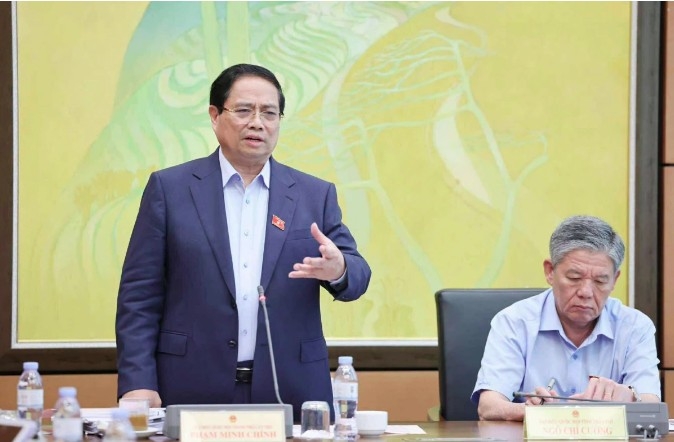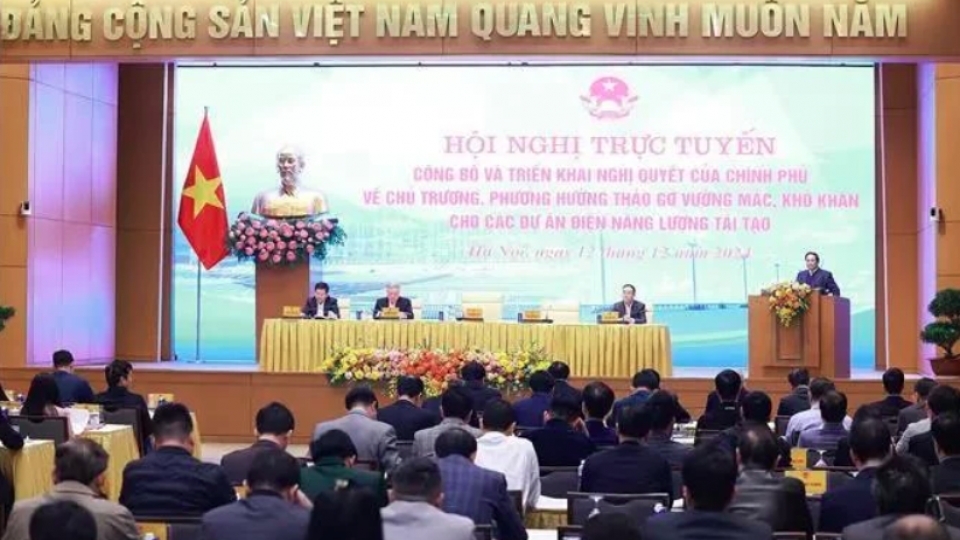Government leader: Accepting losses as tuition fee to resolve stalled projects
VOV.VN - Prime Minister Pham Minh Chinh has emphasized the importance of dealing with long-delayed projects, saying that losses must be accepted in the process as a form of “tuition fee” for drawing lessons and experience.

The Vietnamese cabinet leader was speaking this at a group discussion session of the National Assembly in Hanoi on May 23 regarding various topics, including supplementary evaluations of the implementation of the 2024 socio-economic development plan and state budget, as well as the progress of the socio-economic development plan.
According to PM Chinh, approximately 2,200 projects across the country remain stalled. If resolved, they could tap into over US$230 billion in resources, equivalent to around 50% of the national GDP. The Government is currently drafting appropriate mechanisms and policies to be submitted to competent agencies in order to tackle legal, institutional, and organizational obstacles.
He stressed that violations would not be legitimized, but practical solutions must be found. “We must accept the pain, the losses, even the need to cut away certain parts to recover. These painful decisions will give us new lessons and insights to prevent similar mistakes in the future,” he said.
Forging ahead with growth despite global headwinds
Regarding growth targets, the Government chief said that while the global economy is facing serious challenges and international financial institutions have revised their growth forecasts for this year downward compared to last year, Vietnam is taking a different path by raising its target to 8% for 2025 and aiming for double digit growth in the years ahead.
To achieve this, the Government is focusing on three strategic breakthroughs, including improving institutions, developing infrastructure, and enhancing human resources. Among these, transport infrastructure is identified as a critical bottleneck. Goals include completing at least 3,000 km of expressways by 2025, speeding up high-speed rail projects, expanding inland waterways, building major seaports, and strengthening the aviation sector.
In parallel, efforts are underway to improve infrastructure in education, healthcare, and sports. The Government has also submitted four strategic resolutions to the National Assembly on science and technology, international integration, legal reform, and the private sector.
PM Chinh also underlined the need for proactive integration and enhanced national competitiveness and branding. He affirmed that special circumstances require special, flexible, and effective solutions to achieve long-term development goals.



